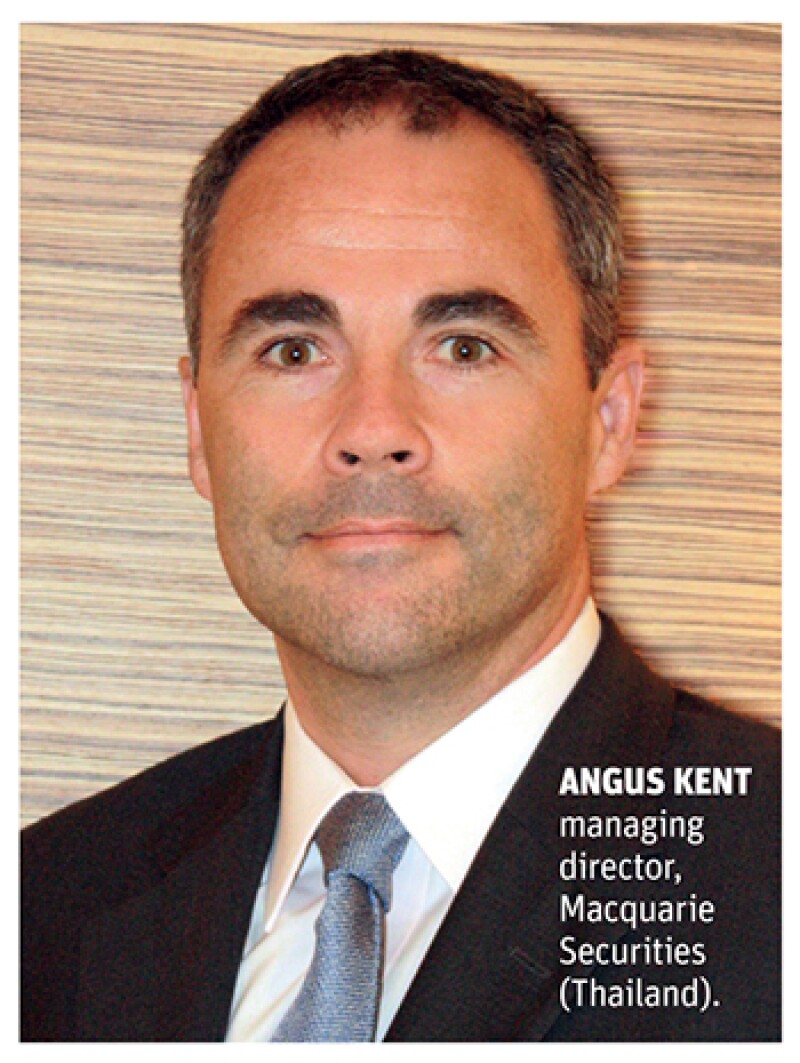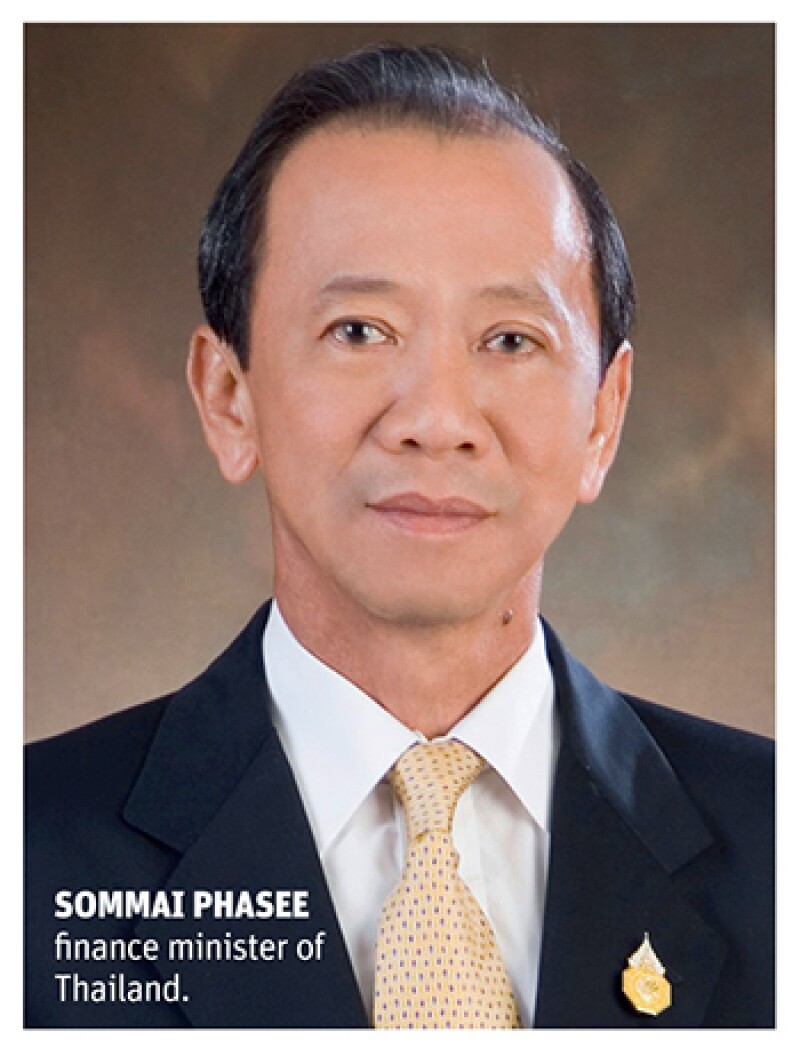Prayuth Chan-Ocha is feeling the heat. After seizing power in May 2014 from an elected government and abrogating the constitution, Thailand’s top general turned prime minister is struggling to deliver on his pledges of bold reform in the face of mounting political and economic challenges.
A host of pronouncements on everything from stamping out corruption to state enterprise reform and infrastructure development raised early hopes of an end to a decade of political paralysis and policy inertia. But so far the government’s actions have fallen far short of expectations.
“Implementing the military government’s reform agenda was never going to be easy,” says Angus Kent, managing director of Macquarie Securities (Thailand). “From the outset, the bar was set fairly high.”

Despite initial successes, like putting an end to the violent street protests, paying off rice farmers an estimated Bt80bn ($2.5bn) owed under a failed subsidy programme and approving a new investment promotion scheme, the Prayuth government increasingly appears to have lost direction. And while criticism of the prime minister remains muted, concerns over the controversial draft Constitution and the failure to prioritise a long list of reforms are undermining faith in his administration.
“To regain confidence after the coup, all the generals had to do was to ensure stability,” says Andrew Stotz, CEO of A Stotz Investment Research. “Now comes the hard part. They have to deliver results. And the longer they stay, the harder it is to achieve that without stirring up opposition.”
Yet some market observers are optimistic about the prospects of reform. Suchart Techaposai, a strategist at CLSA (Thailand), notes that “the government is promoting private investment by accelerating project approvals by the Board of Investment, streamlining factory licensing and establishing five special economic zones in major border provinces to promote trade.”
Other key initiatives include energy reform to limit subsidies on domestic LPG, as well as moves to promote a digital economy by investing in telecom infrastructure, e-commerce and logistics development. “The effects will last in the medium-to-long term and serve as a growth driver,” says Suchart.
While these are important, many analysts point to a more far-reaching and arguably tougher goal embraced by the military: to root out the policy corruption that lies at the heart of Thailand’s political system and which has corroded the once respected bureaucracy.
“This is not about government in the traditional sense of the word,” says Kent at Macquarie. “It is about accountability and putting in place robust systems that will remain in place long after the new elections are held.”
Capital markets revival
One welcome sign of a return to normality has been increased activity in the capital markets. A slew of deals last year demonstrated that despite the political upheavals and subsequent military coup, Thailand is still attractive to local and foreign investors.
Among the most notable transactions was a $290m issue of five year exchangeable bonds by CP Foods, the country’s largest agribusiness company. The offering, brought to the market by Bank of America Merrill Lynch and Phatra Securities in January 2014, marked Thailand’s first ever exchangeable bond and its first equity-linked product since 2011.
CP Foods was not the only issuer to gain a favorable reception. In December, EDL-Generation Public Company, Laos' biggest power producer, raised Bt6.5bn on the Thai capital market. The multi tranche five, seven and 10 year bond was twice subscribed, reflecting high demand particularly from local insurance companies.

“Being a first time issuer, there was a slight premium, but we were happy with the outcome,” says Adisorn Singhsacha, managing director of Twin Pine Consulting, which acted as sole financial adviser.
Adisorn believes that governments, state enterprises and companies in Cambodia, Laos, Myanmar and Vietnam are especially keen on raising funds in the Thai capital markets in the wake of an easing of issuance regulations from the Public Debt Management Office (PDMO).
In mid June, the Lao sovereign was assigned a rating of BBB+ by Thai ratings agency TRIS Rating Corporation, ahead of an expected Bt12bn bond issue that could come as early as July.
The upbeat sentiment has spilled over into equities. In the first quarter of 2015, the combined fundraising of listed companies on the Stock Exchange of Thailand and the Market for Alternative Investment (MAI) was Bt106.82bn, a jump of 4.3 times compared to the same period last year. Meanwhile the SET Index closed at 1,505, up 0.6% from the end of 2014.
Infrastructure plans
A more pressing task for the interim government is to push through its ambitious infrastructure programme. On December 19, the Thai and Chinese governments signed an MoU to build a Bt350bn railway connecting Bangkok to Kaeng Khoi, Nakhon Ratchasima and Nong Khai. According to transport minister Prajin Juntong, the first stage of the railway could be completed as early as 2018.
Not to be left out, Thailand and Japan have also announced plans for a high speed rail link operating between Bangkok and Chiang Mai.
The launch of new rail tracks forms part of an eight year infrastructure development programme that includes everything from railways and mass transit systems to highways, ports and airport extensions. All told, the projects are expected to cost Bt3.3tr.
But the government’s ambitious infrastructure plans could face numerous delays. “Don’t hold your breath,” advises Paul Gambles, head of MBMG Group, an advisory and brokerage firm in Bangkok. Like many analysts, Gambles worries that megaprojects could be held back by various constraints including Thailand’s cumbersome bureaucracy and the timescale involved in the process of expropriating land.
Gambles warns, moreover, that any failure to get the programme off the ground by the second quarter of the year could significantly hit the country's growth prospects for 2015 which could, in turn, have potentially serious consequences in terms of damaging ongoing confidence in the government.
Ironically, a major reason for delays in budget disbursement is the introduction of stringent new regulations designed to boost transparency and accountability in the graft-ridden state procurement business. This has had an unexpected side effect.
“The military has stamped out many of the old corrupt practices but it has not replaced them with anything workable,” says the director of a financial services company. “There is no plan B or template on how to run the government efficiently and cleanly.”
Yet the building of new railways, highways and mass transit systems are seen as vital if Thailand is to maintain its competitive edge over neighboring countries. For two decades, Thailand has underspent on public infrastructure. As a result, logistics costs account for a hefty 14% of GDP, according to Macquarie Research. Politicians have repeatedly promised megaprojects but have delivered nothing.
Now there is a government committed to getting infrastructure to work, it may simply be a question of execution. The good news is that funding is unlikely to be a problem. Finance ministry officials claim that the projects can be largely financed via a combination of the annual government budget, state borrowings, state owned enterprise borrowings and internal cash flow. Thailand’s total outstanding public debt as of March 2015 stood at 46.7% of GDP, well below the global average of 63%.
Sensibly, the government is also planning to finance a portion of the megaprojects through Public-Private Partnerships (PPPs). A January 15 report by Deutsche Bank notes that the Public-Private Partnership Policy committee, chaired by the deputy prime minister, has already approved five laws to facilitate PPPs. Meanwhile new regulations that aim to facilitate joint investments are also being finalised.
Although welcome, the new PPP laws do not in themselves guarantee a revival in the investment environment. Taimur Baig, Asia chief economist at Deutsche, argues that a “further decline in political uncertainty is essential to get the big ticket items going.”
Sluggish economy
Perhaps the biggest source of concern is the slower than expected economic recovery. GDP grew by 0.7% last year, as a result of the prolonged political protests, declining exports and the global economic slowdown.
The outlook for 2015, although much improved, is still far from rosy. The Bank of Thailand (BOT) forecasts GDP growth of 3.8%, down from an earlier estimate of 4.8%. Weaker exports and falling consumer confidence combined with subdued inflation led the BOT on April 29 to deliver a surprise 25bp cut to the policy rate, taking it to 1.5% from 1.75%. “The Thai economy is projected to recover at a slower pace than assessed in the previous meeting,” says BOT assistant governor Mathee Supapongse.
Some economists claim that the BOT is being too optimistic. Euben Paracuelles of Nomura forecasts GDP growth of 3.3% in 2015 with downside risks. Paracuelles notes that in the first half of financial year 2015, the government managed to disburse only 25.5% of on-budget capital expenditures, despite its ambitious stimulus plans. Progress on other big ticket infrastructure projects was even slower, with just 3.8% of planned spending disbursed over the same period.
Kampon Adireksombat, chief economist at Tisco Securities, sees other headwinds. “Dismal imports of capital goods point to uneven investment outlook,” he writes in a report published on April 28.
A much-needed shot in the arm could in theory come from higher tax revenues. The government has said it wants to introduce an inheritance tax of 10% on bequests of more than Bt50m. It has also proposed a controversial land and buildings tax, although fierce opposition from the public and wealthy landowners recently caused this to be put on hold indefinitely. The tax reforms are urgently needed to solve two problems: first, to boost state coffers, and second, to address the yawning wealth disparities that have been the root cause of many of Thailand’s social and political divisions.
The man behind the tax reforms is finance minister Sommai Phasee, a widely respected technocrat. “We hope that by the end of June, we will be able to announce the inheritance tax,” Sommai told the Foreign Correspondents Club of Thailand on January 29. “We cannot continue with business as usual. We want greater transparency and good governance especially in tax collection which is my responsibility.”

But Sommai’s position has been significantly weakened by the decision to postpone the land and buildings tax. This is widely seen as a major defeat for the military-installed government given its unprecedented powers. The fear is that without decisive action, other vital reforms such as implementing a fiscal responsibility act, improving standards of governance and shaking up loss-making state enterprises may also fall by the wayside.
“I am not a politician,” says Sommai. “But what we are trying to do is put in place a new way of thinking for future governments to adopt.”
Endgame
Even if Prayuth succeeds in pushing through his reforms, many uncertainties remain. First and foremost is the question of who will win the next general election, which, according to the government’s own roadmap, is supposed to be held in early 2016. Many political analysts expect the new constitution to usher in a series of weak coalition governments that are unable to push through decisive legislation and are dependent on the whims of small coalition partners. Such a scenario harks back to the days before the appointment of Thaksin Shinawatra as prime minister in 2001, when governments and prime ministers changed so rapidly that investors barely knew who was running the country. It has also raised fears that renewed political tension will flare up after elections have been held.
The uncertain backdrop makes it all the more important for structural reforms to be implemented now whilst the military holds sway. In the absence of such reforms, Thailand may continue to underperform its Asean neighbours.
“Over the past decade, the strength of Thailand’s external finances, moderate public indebtedness and a credible monetary policy framework have repeatedly helped the economy bounce back from natural disasters and political turbulence,” says James McCormack, global head of sovereigns at Fitch Ratings.
In the future, however, this may no longer be the case. McCormack notes that between 2010 and 2014, the Thai economy grew at an average rate of around 3% to 3.5%, compared with 5.6% for six Fitch-rated Asean economies. “A key question is whether Thailand can recapture a stronger growth rate, which may require growth-enhancing structural reforms including infrastructure development,” he adds.
There are some grounds for optimism. Bankers and policymakers agree that moves to tackle corruption and lower the cost of logistics through more efficient transportation networks are important steps in the right direction. The launch of the Asean Economic Community (AEC) on December 31 also promises to accelerate the free movement of services, labour and capital within the region and boost economic growth. Yet to benefit fully from the upcoming single market, Thailand needs to do much more to overhaul outdated regulations, raise the level of education, increase spending on research and development and upgrade its skill set.
“Thailand must get its act together if it is to successfully compete in the future with countries like Indonesia and Vietnam,” says one fund manager. “The problem is that the reforms could take years to achieve.”
Kent is more upbeat. “We know there is a lot going on behind the scenes and a large number of bills waiting to go through the National Legislative Assembly,” he says. “In my view there is every intention to make sure that reforms are implemented before the next general elections.”
For Prayuth, a former general and a man used to waging long campaigns, the battle to reform the country may still be in its early stages. But for many Thais, worn out by a decade of political uncertainty, there is still a long road to recovery.
